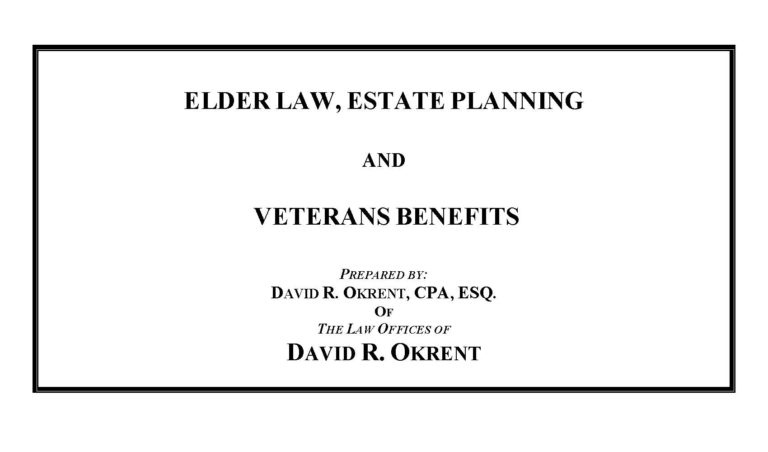Generally
In 2021, Congress passed the Corporate Transparency Act (CTA) on a bipartisan basis. This law created a new Beneficial Ownership Information (BOI) reporting requirement as part of the U.S. government’s efforts to make it harder for bad actors to hide or benefit from their ill-gotten gains through shell companies or other opaque ownership structures. This Act is managed by the Financial Crimes and Enforcement Network (FinCEN ) (https://boiefiling.fincen.gov). The law permits federal, state, local, and tribal officials, as well as certain foreign officials who submit a request through a U.S. Federal government agency, to obtain beneficial ownership information for authorized activities related to national security, intelligence, and law enforcement. Financial institutions will have access to beneficial ownership information in certain circumstances, with the consent of the reporting company. Those financial institution’s regulators will also have access to beneficial ownership information when they supervise the financial institutions. The Law can be found at 31 U.S.C. 5336, and the Regulations at 31 C.F.R. 1010.380.
FinCEN launched the BOI E-Filing website for reporting BOI on its site for “reporting companies” that are not exempted by the law (See the FinCEN webiste for the list of buisness that are exempt from reporting). A reporting company is generally defined as a company that is formed by a filing in the state where it does business. If the reporting company is not an exempt company and was created or registered to do business before January 1, 2024, has until January 1, 2025, to file its initial BOI report, if created or registered in 2024 is has 90 calendar days to file its initial BOI report after receiving actual or public notice that its creation or registration is effective, and if created or registered on or after January 1, 2025, it has 30 calendar days to file its initial BOI report after receiving actual or public notice that its creation or registration is effective. Penalties for failing to file are significant at a potential civil penalty of $500.00 a day, until cured and criminal penalties of up to $10,000.00 and two (2) years in jail.
Court Actions and Constitutionality of CTA
In National Small Business United v. Yellen, Case No. 5:22-cv-1448-LCB (3/1/2024)
On March 1, 2024 the U.S. District Court for the Northern District of Alabama held that the Corporate Transparency Act is unconstitutional in, “In National Small Business United v. Yellen, Case No. 5:22-cv-1448-LCB (3/1/2024) .” In response to this decision the Financial Crimes Enforcement Network issued a notice entitled, “Notice Regarding National Small Business United v. Yellen, No. 5:22-cv-01448 (N.D. Ala.).” FinCEN stated in the notice it will comply with the court order and it will not enforce the Corporate Transparency Act “…against the plaintiffs in that action: Isaac Winkles, reporting companies for which Isaac Winkles is the beneficial owner or applicant, the National Small Business Association, and members of the National Small Business Association as of March 1, 2024…,” all others must comply. This notice was updated on March 11, 2024, to reflect that a Notice of Appeal has been filed regarding this case and as of April 4, 2024 we are awaiting a decision.
Boyle V. Yellen, Et Al, Case No. 2:2024cv00081 (U.S. Dist. Ct., D. Maine)
On March 15, 2024 a second law suit was filed in Maine, Boyle V. Yellen, Et Al, Case No. 2:2024cv00081 (U.S. Dist. Ct., D. Maine) also challenging the constitutionality of the CTA. In this case the plaintiff argues that Congress lacks the power to collect data about his business under the Commerce Clause because his business is engaged exclusively in “intrastate” commerce in the state of Maine. As of the posting of April 4, 2024 we are awaiting a decision.
Texas Top Cop Shop, Inc., et al. v. Garland, et al., No. 4:24-cv-00478 (E.D. Tex.)
On 12/3/2024, in the case of Texas Top Cop Shop, Inc., et al. v. Garland, et al., No. 4:24-cv-00478 (E.D. Tex.), the U.S. District Court for the Eastern District of Texas, Sherman Division, issued an order granting a nationwide preliminary injunction. On 12/23/2024, the U.S. Court of Appeals for the 5th Circuit granted a stay of the district court’s preliminary injunction enjoining the CTA entered in the case ofTexas Top Cop Shop, Inc. v. Garland, 5th Cir. Appeal No. 24-40792 (Dec. 23, 2024), pending the outcome of the Department of the Treasury’s ongoing appeal of the district court’s order. Several other district courts around the country have denied requests to enjoin the CTA, ruling in favor of the Department of the Treasury. The government continues to believe that the CTA is constitutional anf therefore the Department of Justice, on behalf of the Department of the Treasury, filed a Notice of Appeal on 12/5/2024 and sought of stay of the injunction in this case.
Fincen, now has issue an alert once again requiring the filing of beneficial ownership information with FinCEN, but the Department of the Treasury has now granted additional time to comply as follows:
- Reporting companies that were created or registered prior to 1/1/2024 have until 1/13/2025, instead of 1/1/25, to file their initial beneficial ownership information reports with FinCEN.
- Reporting companies created or registered in the United States on or after 9/4/2024 that had a filing deadline between 12/3/2024 and 12/23/2024 have until 1/13/2025 to file their initial beneficial ownership information reports with FinCEN.
- Reporting companies created or registered in the United States on or after 12/3/2024 and on or before 12/23/2024 have an additional 21 days from their original filing deadline to file their initial beneficial ownership information reports with FinCEN.
- Reporting companies that qualify for disaster relief may have extended deadlines that fall beyond 1/13/2025. These companies should abide by whichever deadline falls later.
- Reporting companies that are created or registered in the United States on or after 1/1/2025 have 30 days to file their initial beneficial ownership information reports with FinCEN after receiving actual or public notice that their creation or registration is effective.
- As indicated in the alert titled “Notice Regarding National Small Business United v. Yellen, No. 5:22-cv-01448 (N.D. Ala.)”(see above), Plaintiffs in National Small Business United v. Yellen, No. 5:22-cv-01448 (N.D. Ala.)—namely, Isaac Winkles, reporting companies for which Isaac Winkles is the beneficial owner or applicant, the National Small Business Association, and members of the National Small Business Association (as of 3/1/2024)—are not currently required to report their beneficial ownership information to FinCEN at this time.









